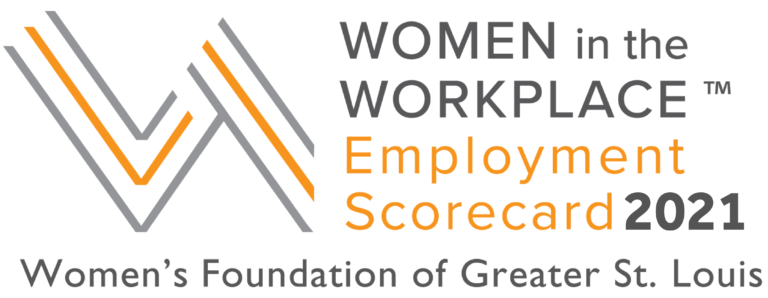The Women’s Foundation of Greater St. Louis Recognizes Wyman for Demonstrating A Strong Commitment to Workplace Gender Equity
ST LOUIS – July 12, 2022 – Today, Wyman was recognized by the Women’s Foundation of Greater St. Louis (WFSTL) as a top place for women to work in the fifth annual “Women in the Workplace: Employment Scorecard.” Wyman was recognized as one of 24 St. Louis employers demonstrating excellence in four areas of workplace gender equity – leadership, compensation, flexible work policies, and recruitment and retention.
“It is again an honor to be recognized by the Women’s Foundation of Greater St. Louis. Wyman is committed to gender equity and opportunity for young people and for our employees. Gender equity and opportunity is right, it is just, and it is crucial to effective leadership. All youth benefit when they see women rise and lead. Thank you for this wonderful recognition!” said Wyman CEO Claire Wyneken.
The Women in the Workplace Scorecard recognizes 24 small, medium, and large companies in the St. Louis region who showed a strong commitment to women in the workplace through measurable outcomes, key policies, and best practices. Criteria includes demonstrating results with women in a minimum of 28 percent of top leadership roles; a minimum of 25 percent of women in the top 10 percent of the most highly compensated employees; a starting wage higher than the Missouri minimum wage; family-friendly flexible work policies; and recruitment and retention programs targeted at advancing women.
Unlike many “Best Places to Work” reports that rely on employee opinion surveys, the Women in the Workplace: Employment Scorecard looks at objective criteria and outcomes. Through a blind data review process by a six-person panel, the Scorecard evaluates company employment practices and their impact on gender diversity. Designated organizational representatives were asked to answer specific questions based on existing policies, practices or employee data.
“This year’s honorees are committed to helping women in the workplace thrive in our region, and they continue to overcome pandemic challenges by ensuring their policies and practices meet the current needs of women,” said Carrie Crompton, executive director of WFSTL. “Many women in the St. Louis region have not returned to the workforce due to a lack of childcare and equitable workplace benefits. The purpose of the Women’s Foundation’s annual Scorecard report is to educate area employers on how to create workplaces where women can be successful.”
For access to the full report, visit wfstl.org


